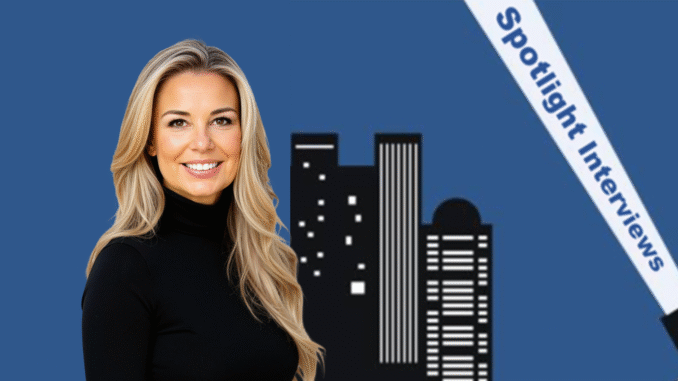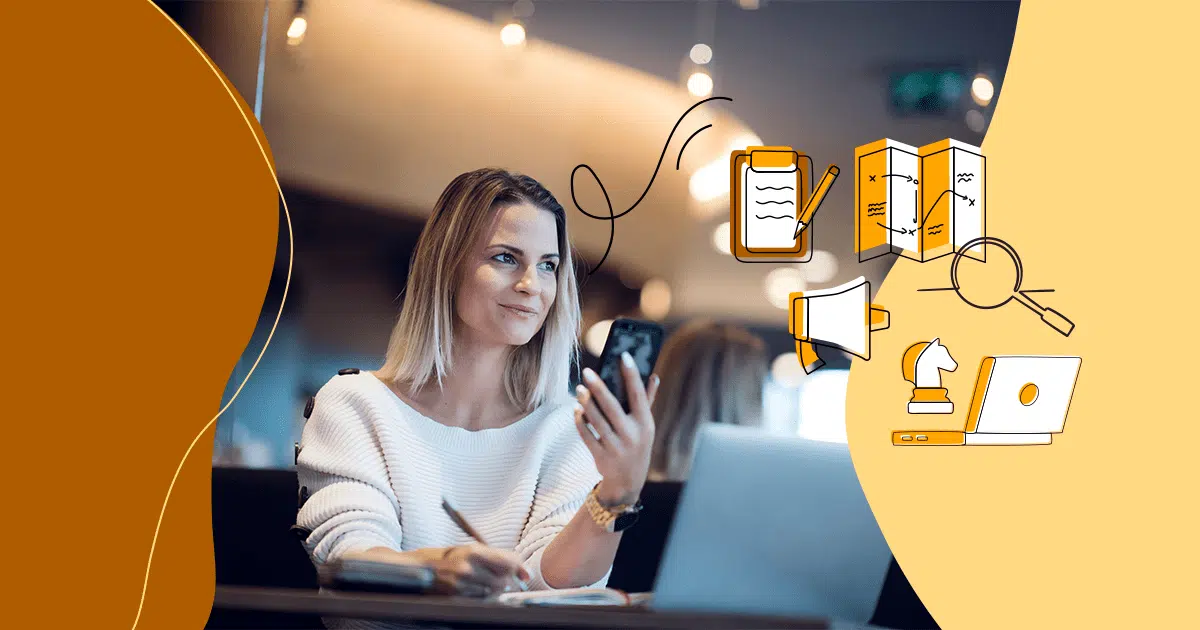
6.4.2025
Few people understand the intersection of branding, technology, and transformation as deeply—or as impactfully—as Ivana Johnston. As the newly appointed CEO of Puzzle Partner, a marketing consulting agency trusted by many of the world’s most innovative companies in hospitality, travel, and technology, she brings a powerful mix of strategic clarity, creative vision, and industry insight to the table.
With over two decades of experience guiding companies through market expansion, brand positioning, and growth-stage acceleration, Johnston has built a reputation as a trusted advisor to both startups and global enterprises. Her approach—rooted in uncovering strategic white space and translating complex solutions into compelling stories—has led to measurable impact, including multiple high-value exits and lasting brand equity.
A member of the Forbes Agency Council and Forbes Business Council, Johnston’s thought leadership appears regularly in Forbes, Entrepreneur, and other leading publications. She is widely regarded as one of the most influential voices in hospitality and travel technology marketing. In this Spotlight Interview, Johnston shares insights into her leadership journey, her vision for Puzzle Partner’s future, and the biggest opportunities—and challenges—facing companies navigating today’s evolving hospitality tech landscape.
First off, congrats on your recent appointment as CEO of Puzzle Partner. What inspired you to pursue a career in marketing and the hospitality and travel technology industry?
Thank you for the kind words. My path to marketing and hospitality tech wasn’t a straight line. It was more of a fascinating convergence of passions. I’ve always been drawn to industries undergoing massive transformation, and hospitality technology sits at this incredible intersection of human connection and digital innovation.
What truly inspired me was seeing how the right marketing approach could fundamentally transform how hospitality tech companies were perceived. Too many brilliant solutions were getting lost in a sea of sameness because they couldn’t articulate their unique value. I saw an opportunity to help these companies become impossible to ignore, not just seen, but truly valued for the transformation they bring.
The hospitality industry itself is so fundamentally human. It’s about creating experiences, building memories, and connecting people. Marketing in this space isn’t just about promoting products; it’s about telling stories that resonate on a deeper level. That human element combined with cutting-edge technology creates this fascinating tension that’s incredibly rewarding to work within.

You co-founded Puzzle Partner over 10 years ago. How has that experience shaped your leadership style and your vision for the company’s future?
The most transformative moment in my Puzzle Partner journey came when I stopped trying to be what I thought the industry wanted and started leaning into what made me different. My outsider perspective became my superpower. I could see patterns and opportunities others missed precisely because I wasn’t trapped in conventional thinking.
For years, I tried desperately to fit the mold of what I thought a hospitality marketing expert should be. I’d walk into client meetings overcompensating with industry jargon and technical terms, terrified they’d discover I hadn’t spent decades inside hotel operations like my competitors had.
Then came a pivotal moment with a major client. During a high-stakes presentation, a hotel executive interrupted me and said, “We don’t need another insider telling us what we already know. We need someone who sees what we’re missing.” That’s when everything clicked.
My outsider perspective wasn’t a liability, it was my superpower. While industry veterans were recycling the same approaches, I could see patterns and opportunities they were blind to precisely because I wasn’t constrained by “how things have always been done.”
I started leaning into this difference. When everyone was focused on flashy features, I’d redirect conversations to guest emotions. When competitors presented predictable competitive analyses, I’d bring unexpected analogies from completely different industries. When others followed established marketing formulas, I’d question the fundamental assumptions behind them.
This perspective shift transformed not just our agency’s approach but our entire business trajectory. Clients who initially seemed out of reach started seeking us out specifically because we weren’t just another hospitality marketing firm recycling the same old playbook.
How does Puzzle Partner’s approach to branding, messaging, and demand generation content help clients achieve their business goals?
Our approach begins with a fundamental realization: most marketing problems aren’t actually marketing problems—they’re positioning problems. Before we even consider demand generation tactics or content calendars, we focus obsessively on getting the strategic foundation right.
Think of it like building a house. You can have the most beautiful interior design in the world, but if the foundation is shaky, nothing else matters. That’s why we start by immersing ourselves in our clients’ businesses, understanding not just what they do but why it matters.
We interview their customers, analyze their competitors, and study their market dynamics. This archaeological approach uncovers the white space, the opportunity to position them in a way that makes them impossible to ignore. It’s like finding the perfect unclaimed territory on a map where they can plant their flag.
Once we’ve established that strategic foundation, we build messaging frameworks that translate complex value propositions into simple, powerful stories. These stories don’t just explain what our clients do—they reshape how the market perceives them. This is particularly critical in hospitality technology, where solutions are often complex and the true value can be difficult to articulate.
With this foundation in place, our demand generation approach becomes far more effective because we’re not just creating noise—we’re creating signal. Our content strategy focuses on establishing thought leadership that elevates our clients above the day-to-day conversation and positions them as visionaries shaping the future of their categories.
This integration of strategy, messaging, and execution creates a powerful alignment that directly impacts business outcomes. It’s why our clients don’t just see improvements in marketing metrics—they see transformations in how they’re valued by the market, which translates directly to business results.

You’re recognized as a thought leader in the hospitality and travel technology industry. What are the most significant trends you see shaping the future of this sector?
First, technology has evolved beyond being the quiet backbone of operations to become the star that creates those “wow” moments for guests. What once functioned behind the curtain now takes center stage.
Second, we’re witnessing this incredible fusion between travel, hospitality, and wellness. The most innovative brands aren’t just adding spa packages. They’re completely reimagining their guest experience through a wellbeing lens. I’ve seen firsthand how properties leveraging technologies that integrate sleep science, personalized wellness journeys, and holistic health approaches are seeing both stronger guest loyalty and healthier profit margins.
Third, tech stack consolidation is finally happening. The days of managing dozens of disconnected systems are ending as comprehensive platforms emerge that seamlessly handle the entire guest journey, driving significant M&A activity throughout the sector.
Finally, AI is revolutionizing interactions in ways we barely imagined five years ago. The most exciting development? Agentic AI that doesn’t just respond but anticipates guest needs proactively. When implemented thoughtfully, it actually amplifies the human touch that makes hospitality special by handling routine tasks so your team can focus on those magical moments of connection.
What excites me most is how these converging forces are creating entirely new opportunities for those brave enough to embrace change. The future belongs to the visionaries who see these shifts not as threats but as invitations to reimagine what hospitality can become.
What are the key challenges hospitality and travel technology companies face in today’s competitive market?
When I look at today’s hospitality technology landscape, I see tremendous innovation happening alongside some persistent challenges that keep great solutions from reaching their full potential.
To start – we’re drowning in sameness! The differentiation challenge is real. I can’t tell you how many pitches I’ve heard that sound identical. What’s missing isn’t better technology but better storytelling. Companies focus obsessively on features rather than articulating how they solve real business problems that keep hotel executives up at night.
Also, there’s the increasingly complex sales environment. The stakeholder maze is incredibly complicated. A successful sale requires navigating the priorities of IT teams (integration and security), operations leaders (staff adoption), marketing leaders (guest experience, loyalty) and financial executives (demonstrable ROI)—all while maintaining a coherent value proposition. It’s like solving a Rubik’s cube where each face has different goals.
What advice would you give to hotel technology companies looking to effectively market their products and services in today’s competitive landscape?
After years in this industry, I’ve witnessed firsthand the disconnect between how tech companies talk about themselves and what hoteliers actually care about. I’ve watched countless demos where companies drone on about technical specifications while their audience’s eyes glaze over. Your customers don’t wake up excited about your API structure. They’re looking for solutions to business problems that keep them up at night.
Your breakthrough moment comes when you demonstrate not just what your platform does, but how you’ll support customers every step of the way. As one hotel executive told me recently, “I don’t remember all the sales promises, but I’ll never forget the team that answered our call at 2 AM when our system went down during peak check-in.”
The companies that thrive in this space align marketing with sales approaches, stake out clear thought leadership positions, and build reputations through consistency and delivering on promises.
Remember: In hospitality, technology should never be the destination. It’s the vehicle that delivers unforgettable guest experiences and operational excellence. When your marketing reflects this truth, you’ll find yourself having entirely different conversations with decision-makers.
